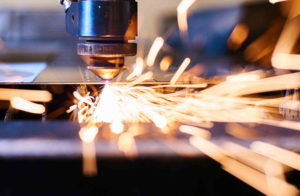
This article provides tips on minimizing threats from industrial fires.
Industrial fires are not to be taken lightly. You can complete multiple things at your factory or plant to reduce the likelihood of an industrial fire. First, you must understand how they typically start. So, what are the prevalent causes of industrial fires? This article provides tips on minimizing threats from industrial fires.
Hot Work Activities
Hot work is any activity that consists of open flames or produces heat or spark. This includes heat treating, welding, thawing pipes, grinding, brazing, torch cutting, soldering, and more. Additionally, hot work becomes hazardous when molten material and sparks travel, igniting inflammable dust in other areas. To prevent hot work fires, attempt these tips:
- Clear areas of combustible materials including gases, dust, and liquids.
- Ensure a safety professional is on-site to offer work supervision.
- Train personnel on the hazards linked with hot work and ensure they use proper safety equipment.
- Please avoid performing hot work if possible.
Combustible Dust Fires
Another cause of industrial fires is combustible dust fires. They are dust or fine materials that can potentially catch fire and explode when combined in the air. Sometimes, non-inflammable materials are combustible when mixed with fine particles with air in a particular concentration.
Furthermore, combustible dust occurs in two waves. A primary explosion triggers particles to become airborne. Then the dust cloud ignites and provokes a secondary explosion, more severe than the first. Also, combustible dust can deteriorate entire facilities.
So, prevent combustible dust fires by regularly inspecting for dust residues in open and enclosed areas, implementing a hazardous dust testing and control program, or using proper dust collection systems.
Equipment & Machinery Fires
Improperly installed, maintained, or incorrectly operated equipment significantly causes industrial fires. Even machinery not seen as fire hazards can be a risk with a lack of maintenance. Fortunately, you can prevent this by training your employees to identify potential risks and what to do if they see one. You can also keep the equipment and machines clean. Remember to prevent machine overheating by following the manufacturer’s recommended maintenance procedures guidelines.
Electrical Hazard Fires
Lastly, electrical fires are the most common causes of industrial fires and include wiring that is not up to code, exposed, overloaded extension cords, static discharge, etc. Additionally, a spark from electrical hazards can ignite combustible dust, liquids, and gases.
You can easily prevent electrical fire hazard fires by avoiding overloading electrical equipment or circuits, unplugging temporary equipment not in use, and following a regular cleaning schedule to ensure hazardous materials are eliminated from areas that store equipment.
Commercial and Residential Fire Prevention from Judd Fire Protection
If you want to ensure your home and business are safe throughout the year, trust Judd Fire Protection, LLC. We have over two decades of experience designing, installing, inspecting, and repairing residential and commercial fire protection systems. We serve clients throughout Maryland, Pennsylvania, Washington, D.C., Virginia, and West Virginia. If you are interested in finding out more about our services and protecting your home and business, give us a call at 410-871-3480.
